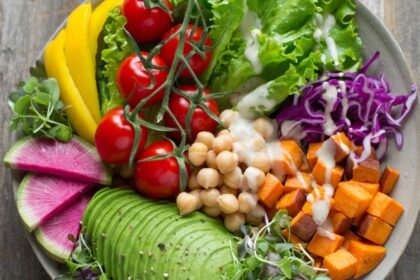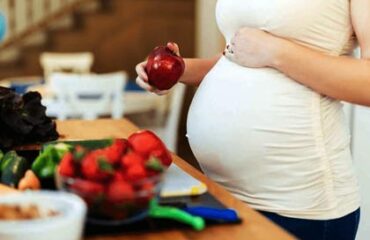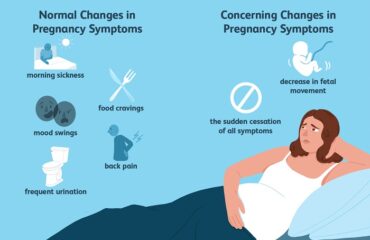
It is important to maintain a healthy diet during pregnancy.
Your body needs additional nutrients, vitamins, minerals, and some 300-350 extra calories each day during pregnancy. You should talk to your gynecology doctor during pregnancy.
A diet lacking in nutrients, poor eating habits may lead to some pregnancy problems. Similarly over eating or eating all the wrong things may lead to excess weight gain and may also increase your risk of gestational diabetes.
So choosing a healthy, nutritious diet will help ensure that you and your baby both are healthy.
When A non-medical friend’s daughter, who was eight weeks pregnant ordered spring rolls at a restaurant, another one of my friends reacted as if she had ordered a double whiskey. “You can’t have Chinese food when you’re pregnant!” she shouted! When I asked her why she thinks so, she said she thought that one cannot have Chinese food during pregnancy. Well, then what do Chinese women eat during their pregnancy! Actually, it is ajinomoto in big quantity which cannot be taken, and Chinese food is safe.
Yes, certain foods can lead to pregnancy problems and one should know about them.
From conception onwards, it is very important to have folic acid.
Vitamin D is another important thing needed during pregnancy.
Iron and Calcium along with some minerals is also needed. Protein and fibre in diet is also important.
Legumes are great sources of folate (folic acid), fiber and many other nutrients. Folate is a vitamin that reduces the risk of neural tube defects in the growing baby.
Fruits are a good source of many vitamins and fibre. Fibre helps in reducing the problem of constipation often bothering a pregnant lady.
Green leafy vegetables are a good source of iron. Avocados contain high amounts of fibre, folate and potassium. Potassium helps to relieve leg cramps that are common in pregnant women.
Sweet potatoes are an excellent source of beta-carotene, which is important for the growing fetus.
Whole eggs are a good source of protein (the white part) along with many nutrients in the yellow part. You can have two eggs daily. Chicken and fish give you a lot of protein as does paneer for vegetarians.
Dairy products like milk, yoghurt should be consumed in sufficient quantity as it is a good source of protein and calcium..
Dry fruits like almonds and walnut are good for pregnant women but make sure to limit your portions.
Drinking water is very important during pregnancy. It may also help prevent constipation and urinary tract infections which are comparatively more common during pregnancy.
Some foods are to be avoided during pregnancy.
Raw fish and shell fish, Raw or undercooked meat, and raw eggs must be avoided as they may lead to infection if contaminated.
Pregnant women should limit their caffeine intake to one or two cups of coffee. High caffeine intake during pregnancy is bad. Try to have decaffeinated coffee. Also, reduce tea intake to two to three cups. Green tea should not be taken during pregnancy.
Pregnant women should not drink alcohol as it increases the risk of miscarriage, stillbirth.
In the second and third trimesters the nutrients, iron, and calcium are given in tablet form also along with the good diet.





